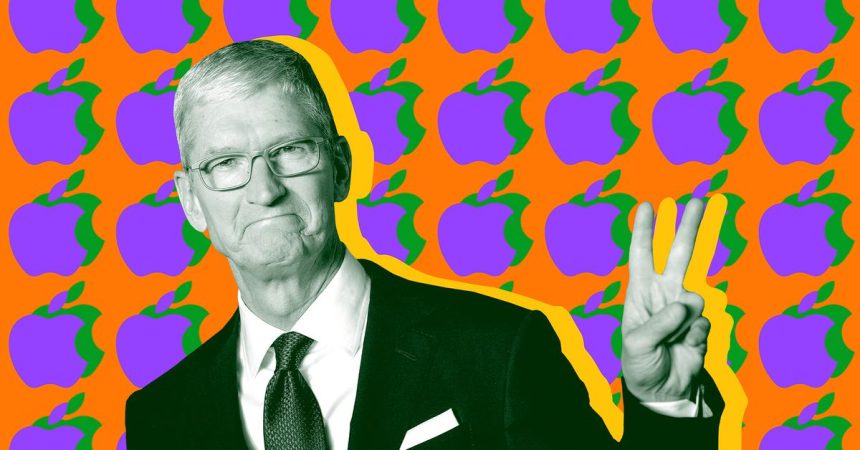Tim Cook’s Inaugural Donation: A Strategic Move Amidst Political Transition
Apple CEO Tim Cook’s $1 million donation to President-elect Donald Trump’s inauguration committee represents a significant gesture within the context of the evolving relationship between the tech industry and the incoming administration. Cook’s contribution follows similar commitments from other tech leaders, including OpenAI CEO Sam Altman, Amazon founder Jeff Bezos (through Amazon), and Meta, signaling a concerted effort by Big Tech to establish favorable connections with the new political landscape. This trend reflects a broader recognition within the tech sector of the importance of maintaining open communication and collaboration with government, especially during periods of transition and uncertainty.
Cook’s decision to personally donate to the inauguration, while Apple itself is not expected to contribute, underscores a nuanced approach to political engagement. This personal commitment may be interpreted as a strategic move to cultivate a direct line of communication with the incoming president, potentially bypassing the complexities and bureaucracy of corporate-level interactions. Cook’s established relationship with Trump, built during the latter’s first term, serves as a foundation for this engagement, offering a model for other tech CEOs seeking to navigate the new political terrain.
The timing of Cook’s donation, amidst a backdrop of political transition, adds another layer of complexity to the interpretation of this act. Inaugural donations, while common practice, can be perceived as gestures of support and goodwill, potentially influencing future policy decisions and regulatory frameworks. In the context of the tech industry, which faces increasing scrutiny regarding issues such as antitrust, data privacy, and content moderation, maintaining a positive relationship with the administration holds strategic importance. By contributing to the inauguration, Cook may be aiming to position Apple favorably within the new political order, ensuring the company’s voice is heard and its interests are considered in future policy discussions.
Cook’s stated rationale for the donation, emphasizing the inauguration as a "great American tradition" and a symbol of "unity," attempts to frame the contribution as a non-partisan gesture of civic participation. However, given the highly polarized political climate, such interpretations are likely to be subject to scrutiny and diverse perspectives. Some may view the donation as a pragmatic move to secure Apple’s interests, while others may interpret it as an endorsement of the incoming administration’s policies and values. Regardless of the underlying motivations, Cook’s donation highlights the delicate balancing act tech leaders face in navigating the intersection of business, politics, and public perception.
The broader context of Big Tech’s engagement with the incoming administration reveals a shared interest in maintaining open dialogue and influencing policy decisions that impact the industry. Issues such as taxation, trade, immigration, and technological innovation are likely to be at the forefront of these discussions. By building relationships with key political figures, tech leaders aim to ensure their perspectives are considered in the formulation of policies that shape the future of the digital economy. This engagement also serves as a risk mitigation strategy, allowing tech companies to anticipate and adapt to potential regulatory changes and minimize disruptions to their operations.
In conclusion, Tim Cook’s $1 million donation to President-elect Trump’s inauguration committee represents a carefully calculated move within a complex political and economic landscape. While framed as a gesture of unity and support for a democratic tradition, the donation also carries strategic implications for Apple and the broader tech industry. As the new administration takes shape, Cook’s established relationship with Trump and his proactive engagement with the political process may prove to be valuable assets in navigating the challenges and opportunities that lie ahead. The long-term impact of this donation and the evolving relationship between Big Tech and the new government remain to be seen, but the significance of this gesture within the current political climate cannot be understated.



